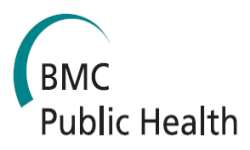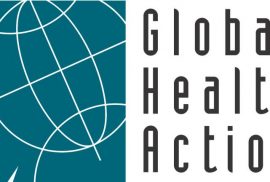Abstract
Salah satu kebijakan pembangunan bidang kesehatan yang dipergunakan untuk mengatasi kesehatan ibu hamil adalah pemberdayaan masyarakat. Keberhasilan pemberdayaan dapat diketahui melalui berbagai cara, salah satunya partisipasi masyarakat. Penelitian ini bertujuan untuk mengidentifikasi kondisi sosial, budaya, dan ekonomi yang mempengaruhi partisipasi ibu hamil ke posyandu. Penelitian ini menggunakan rancangan etnografi.Teknik yang digunakan untuk pengumpulan data adalah wawancara mendalam, focus group discussion, observasi dan nominal group process. Data yang diperoleh dari pendekatan kualitatif akan diolah dengan content analysis.
ABSTRAK
Perkuliahan dengan menggunakan prinsip-prinsip Gagneì merupakan salah satu bentuk kuliah interaktif. Metode ini dapat membantu mahasiswa untuk menyesuaikan eventevent di luar dengan proses memori internal.
Penelitian ini bertujuan untuk membandingkan perbedaan keefektifan perkuliahan yang menggunakan prinsip-prinsip Gagneì dan perkuliahan model tradisional terhadap motivasi dan hasil belajar
mahasiswa. Metode penelitian yang digunakan adalah eksperimen. Data berupa hasil belajar diukur dengan tes pilihan ganda; sedangkan motivasi mahasiswa diukur dengan Motivated Stategies for Learning Questionnaire (MSLQ).
Abstract :
Role of Health Center Staff in Health Promotion of Smoking Cessation of Patients and The Community
Backgrounds: Smoking is a complex and global problem. Its impact to health is undeniable. Nevertheless, the prevalence of smoking increases in developing countries, whereas in developed countries the prevalence decreases. The prevalence of smoking in population always increases. In the Sleman district the prevalence of smoking in the population of above 10 years old reaches 26.7%, the prevalence of smoking household is 55.74%. Data of 8 major diseases causing mortality in hospitals at District of Sleman shows that 4 of them are diseases related to cigarettes. Health staffshave a very strategic role to promote smoking cessation in patients
and the community.
Background: In favor of the economic value of tobacco,Indonesia has minimal anti-smoking policies and regulations.Even though smoking is not permitted in the government offices,health facilities, and schools, the regulation has not yet beenfully implemented, particularly in tertiary education institutionssuch as universities. Faculty of medicine, as institutioneducating future medical professional, should be role model inimplementing the tobacco free campus policy.
Objective: The present study examines the effectiveness oftobacco free campus policy in the Faculty of Medicine,University of Gadjah Mada (FM UGM) in Yogyakarta Province.Method: Two cross-sectional surveys on medical studentsmoking behaviors were conducted in 2003 (n=734) and 2007(n=463), respectively. The prevalence of smoking and quittingeffort were measured in both surveys. Studentâs opinion ontobacco free campus policy was measured in 2007.
Background: Low birth weight (LBW) poses the biggest contribution toward neonatal mortality and has long- term health consequences for a child. A psychological condition with depressive disorders in pregnant women affects indirectly the risk of LBW. Previous studies show that there have been different arguments about the effect of depressive symptoms toward birth weight.
Objective: To investigate the relationship between pregnant women’s depressive symptoms and low birth weight.
Method: This was an observational study with an unmatched case control study design. The case was women presenting LBW, including preterm, intra uterine growth restriction (IUGR) and the control was women presenting normal birth weight (> 2.500 grams) with comparison of 1:2. Data were analyzed with univariable analysis, bivariable analysis using chi-square test and multivariable analysis using logistic regression.
Contributors : FST Dewi, H Stenlund, M Hakimi and L Weinehall
Abstract
This paper aims to describe changes in risk factors for cardiovascular disease (CVD) over a five year period in urban Indonesia. In 2004 (n=3,205) and 2009 (n=2,467) we conducted cross-sectional surveys of residents in Yogjakarta City, Indonesia evaluating risk factors for CVD. Smoking habits, fruit and vegetable intake, physical activity, blood pressure, weight, and height were recorded. The results of these 2 surveys conducted 5 years apart were then compared. The risk for having a CVD event was also calculated. Behavioral CVD risk factors were more common among men. The predicted risk of having a CVD event increased from 8.4% to 11.3% among men between 2004 and 2009. Effective measures need to be taken to change these behaviors among men in Yogyakarta, Indonesia.
Contributors : Fatwa Sari Tetra Dewi,Hans Stenlund,V Utari Marlinawati,Ann Öhmanand Lars Weinehall
Background
Non-communicable Disease (NCD) is increasingly burdening developing countries including Indonesia. However only a few intervention studies on NCD control in developing countries are reported. This study aims to report experiences from the development of a community-based pilot intervention to prevent cardiovascular disease (CVD), as initial part of a future extended PRORIVA program (Program to Reduce Cardiovascular Disease Risk Factors in Yogyakarta, Indonesia) in an urban area within Jogjakarta, Indonesia.
Contributors : Fatwa S.T. Dewi1,2*, Hans Stenlund2,3, Ann Öhman2,3, Mohammad Hakimi4and Lars Weinehall2,3,5
Introduction: Cardiovascular disease (CVD) is a burden for developing countries, yet few CVD intervention studies have been conducted in developing countries such as Indonesia. This paper outlines the process of designing a community intervention programme to reduce CVD risk factors, and discusses experiences with regard to design issues for a small-scale intervention.
Design process:The design process for the present community intervention consisted of six stages: (1) a baseline risk factor survey, (2) design of a small-scale intervention by using both baseline survey and qualitative data, (3) implementation of the small-scale intervention, (4) evaluation of the small-scale intervention and design of a broader CVD intervention in the Yogyakarta municipality, (5) implementation of the broader intervention and (6) evaluation of the broader CVD intervention. According to the baseline survey, 60% of the men were smokers, more than 30% of the population had insufficient fruit and vegetable intake and more than 30% of the population were physically inactive, this is why a small-scale population intervention approach was chosen, guided both by the findings in the quantitative and the qualitative study.
Contributors : Fatwa S.T. Dewi1,2*, Lars Weinehall2,3,4and Ann Öhman2,4
ABSTRACT
Community intervention programmes to reduce cardiovascular disease (CVD) risk factors within urban communities in developing countries are rare. One possible explanation is the difficulty of designing an intervention that corresponds to the local context and culture.
Objectives: To understand people’s perceptions of health and CVD, and how people prevent CVD in an urban setting in Yogyakarta, Indonesia.
Methods: A qualitative study was performed through focus group discussions and individual research interviews. Participants were selected purposively in terms of socio-economic status (SES), lay people, community leaders and government officers. Data were analysed by using content analysis.




